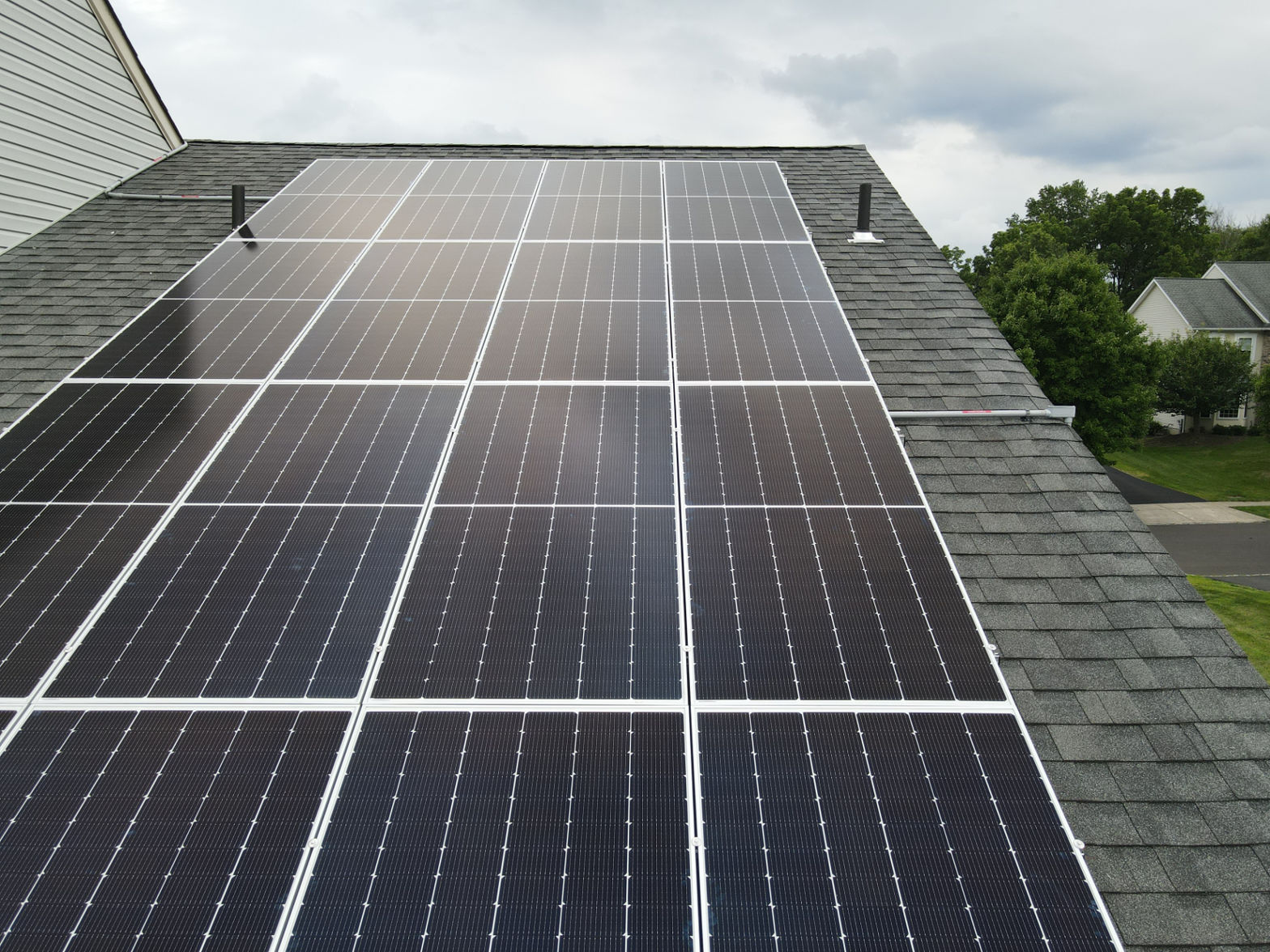In Pennsylvania, the excitement around solar energy stems from its dual benefits, environmental friendliness, and financial advantage. The state is at the forefront of encouraging solar adoption through diverse incentives, transforming solar energy from a mere eco-conscious choice into a financially beneficial one. By leveraging the abundant sunlight, these incentives make the transition to solar power both practical and economically appealing for its residents. Moreover, this shift towards solar energy aligns with broader goals of sustainability and renewable energy use, positioning Pennsylvania as a leader in green initiatives. The state’s support for solar power not only reduces carbon footprints but also paves the way for future advancements in renewable energy technologies.
Understanding Solar Energy
Solar energy is a clean, renewable power source harnessed using solar panel technology. These panels, part of photovoltaic systems, convert sunlight directly into electricity. They work by absorbing photons (light particles) and initiating an electric current. This process transforms the abundant energy from the sun into usable power, offering a sustainable alternative to traditional energy sources. The simplicity and efficiency of solar panels make them an increasingly popular choice for those seeking renewable and environmentally friendly energy solutions.
The Importance of Solar Incentives
Solar incentives in Pennsylvania play a pivotal role in accelerating solar adoption by mitigating the initial financial barriers. These incentives, often in the form of government rebates, tax credits, and grants, make solar energy systems more affordable and attractive to both individuals and businesses. By reducing the upfront costs, these incentives not only enhance the financial benefits of solar energy but also encourage wider participation in renewable energy adoption. The result is a synergistic effect where more people can contribute to environmental sustainability while reaping the economic advantages of lower energy costs over time.
Federal Tax Credits
The Federal Investment Tax Credit (ITC) is a significant solar tax incentive that allows homeowners and businesses to deduct a portion of their solar energy system costs from their federal taxes. This credit, a key driver in the U.S. solar industry’s growth, effectively reduces the overall expense of installing solar panels. By offering a direct deduction from the total tax liability, the ITC makes solar more affordable and accessible, thereby encouraging more people to adopt this renewable energy source. This tax benefit not only promotes sustainable energy solutions but also provides substantial financial savings over the lifetime of the solar energy system.
Pennsylvania Solar Investment Program (PSIP)
The Pennsylvania Solar Investment Program (PSIP) is a state-specific initiative designed to bolster solar energy adoption through financial incentives. PSIP offers rebates and other monetary benefits to residents and businesses installing solar photovoltaic systems. These incentives aim to reduce the initial investment cost of solar installations, making solar energy more accessible and financially viable for a broader range of Pennsylvanians. By supporting individuals and businesses in transitioning to renewable energy, PSIP plays a critical role in advancing Pennsylvania’s solar programs and moving towards a more sustainable energy future.
Solar Renewable Energy Credits (SRECs)
Solar Renewable Energy Credits (SRECs) are a form of renewable energy credits that solar system owners can earn for generating solar power. Each SREC represents one megawatt-hour of electricity produced by a solar installation. Owners can sell these credits in the SREC market, creating an additional revenue stream. This system not only incentivizes solar adoption but also helps regulate renewable energy production, ensuring steady growth in the sector. By participating in SREC trading, solar system owners can offset installation costs and contribute to the growth of renewable energy, making these credits a valuable component of solar credit programs.
Property Tax Exemption
In Pennsylvania, solar installations can lead to a property tax exemption, ensuring that the added value of a solar energy system does not increase property taxes. This exemption is significant as it allows homeowners to enhance their property’s value with solar energy installations without the burden of higher property taxes. This policy not only makes solar more attractive by reducing the overall cost of ownership but also aligns with the state’s commitment to encouraging renewable energy. By providing these tax benefits, Pennsylvania supports homeowners in making environmentally friendly choices while safeguarding them from potential financial disincentives.
Sales Tax Exemption
The purchase of solar equipment is exempt from state sales tax, offering a direct cost-saving advantage to those investing in solar energy systems. This exemption significantly lowers the initial expense of acquiring solar panels and related equipment, making solar installations more financially accessible. By removing the sales tax burden, the state not only encourages the adoption of renewable energy but also provides a tangible financial benefit to residents and businesses opting for solar power. This policy is a clear indication of Pennsylvania’s commitment to promoting sustainable energy solutions through practical, economic incentives.
Net Metering
Net metering is a policy that allows owners of solar systems to earn credits for the excess energy their installations produce and feed back into the grid. In essence, when solar panels generate more electricity than a home or business uses, this surplus is sent to the power grid, and the owner receives credits on their utility bill. This system effectively turns solar installations into personal power stations, where excess production can offset the cost of power drawn from the grid at other times. Net metering not only provides financial benefits by reducing utility bills but also enhances the efficiency and value of investing in solar energy, making it a key factor in the broader adoption of renewable energy.
Conclusion
To summarize, Pennsylvania offers a comprehensive suite of incentives to encourage solar energy adoption, making it financially appealing and environmentally responsible. These incentives include the Federal Investment Tax Credit, state-specific benefits like the Pennsylvania Solar Investment Program (PSIP), and Solar Renewable Energy Credits (SRECs), all designed to reduce the initial cost and enhance the return on investment for solar installations. Policies like property and sales tax exemptions, along with net metering, provide ongoing financial benefits, further incentivizing residents and businesses to switch to solar. Collectively, these incentives not only make solar energy more accessible but also demonstrate Pennsylvania’s commitment to fostering a sustainable energy future.
Ready to harness the power of the sun in Pennsylvania? Discover how you can benefit from the state’s generous solar incentives with Sunwise USA! Our expert team is here to guide you through every step, from understanding the Federal Investment Tax Credit to navigating Pennsylvania’s Solar Investment Program and more. Say yes to sustainability and significant savings. Visit Sunwise USA now to start your solar journey and make the most of Pennsylvania’s solar incentives!
FAQs
- How does solar energy benefit the environment?
Solar energy reduces reliance on fossil fuels, decreasing greenhouse gas emissions.
- Can I save money with solar energy in Pennsylvania?
Absolutely! With various incentives, solar energy can significantly reduce your energy bills.
- What are SRECs and how do they work?
SRECs are credits you earn for producing solar energy, which you can sell for additional income.
- Is there a deadline for the Federal ITC?
Yes, the ITC is set to decrease over time, so the sooner you adopt solar, the better the benefits.
- Do solar panels increase property taxes in Pennsylvania?
No, solar installations are exempt from property tax assessments in Pennsylvania.










